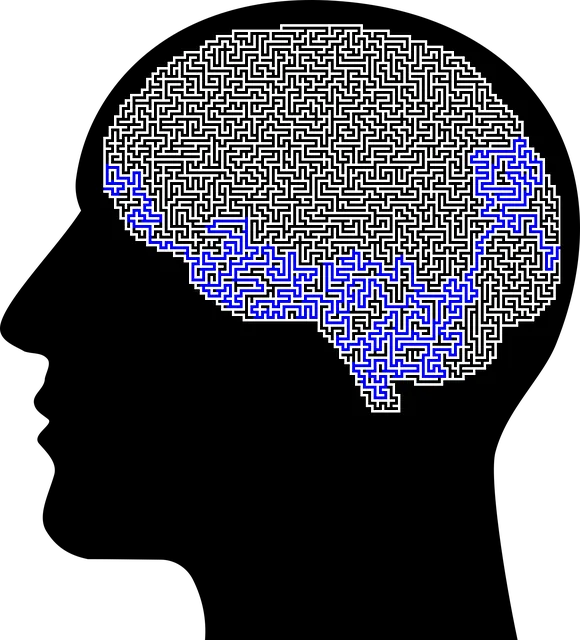Kaiser Permanente behavioral health providers in Centennial utilize the RFM model to deepen patient relationships and enhance mental well-being, offering personalized interventions for anxiety relief and resilience building. Their holistic approach, including mindfulness meditation exercises, promotes stronger connections and healthier work-life balances for both providers and patients, aligning with Kaiser Permanente's mission to improve community mental health. By assessing risk factors, frequency of distressing events, and client motivation, they've seen significant improvements in clients' stress coping abilities, demonstrating their commitment to holistic well-being.
“Resilience is a critical component of behavioral health, and the RFM (Resource, Fortitude, Mastery) model offers a structured approach to enhance it. This article explores the profound impact of RFM on mental well-being in Centennial, as demonstrated by Kaiser Permanente’s innovative program. We delve into effective resilience-building exercises tailored for behavioral health providers and present a case study highlighting successful implementation strategies from Kaiser Permanente’s team in Centennial. Discover how these methods are revolutionizing care.”
- Understanding RFM and Its Impact on Behavioral Health in Centennial
- Kaiser Permanente's Approach to Building Resilience in Patients
- Effective Resilience-Building Exercises for Behavioral Health Providers
- Implementing RFM Strategies: A Case Study from Centennial's Behavioral Health Team
Understanding RFM and Its Impact on Behavioral Health in Centennial

In Centennial, understanding RFM (Reach, Frequency, and Monetary value) is gaining prominence in the field of Kaiser Permanente behavioral health services. This customer retention model has shifted focus from merely acquiring new clients to deepening relationships with existing ones, an approach that aligns perfectly with enhancing mental well-being. By analyzing how often and how much patients engage with their healthcare providers, Kaiser Permanente behavioral health providers in Centennial can tailor interventions for better anxiety relief and resilience building. This strategy not only improves patient satisfaction but also acts as a potent burnout prevention strategy for healthcare providers, fostering a healthier, more sustainable working environment.
The impact of this approach is significant, especially considering the high-stress nature of healthcare work. By prioritizing RFM, Kaiser Permanente in Centennial can ensure that their behavioral health services not only reach those who need them but also foster stronger, more meaningful connections, ultimately contributing to improved mental health outcomes for both patients and providers.
Kaiser Permanente's Approach to Building Resilience in Patients

Kaiser Permanente, a renowned healthcare organization, has recognized the importance of resilience in patient care and well-being. Their approach to building resilience is an innovative strategy aimed at supporting both patients and behavioral health providers in Centennial. By integrating holistic methods, Kaiser Permanente offers a comprehensive program that addresses the mind, body, and spirit. This includes various exercises designed to enhance mental fortitude, manage stress, and promote trauma support services.
The organization’s behavioral health providers play a pivotal role in guiding patients through burnout prevention strategies for healthcare providers, ensuring they can navigate the challenges of their profession while maintaining resilience. Through personalized interventions, group therapy sessions, and accessible Trauma Support Services, Kaiser Permanente empowers individuals to develop coping mechanisms that strengthen their overall resilience, fostering a healthier and more sustainable work-life balance for themselves and their patients.
Effective Resilience-Building Exercises for Behavioral Health Providers

Effective Resilience-Building Exercises for Kaiser Permanente Behavioral Health Providers in Centennial
At Kaiser Permanente, behavioral health providers in Centennial play a vital role in fostering mental health awareness and implementing stress reduction methods among their clients. To enhance their own resilience and better serve others, these professionals can incorporate targeted exercises into their practices. Mindfulness meditation, for instance, has been shown to be an effective depression prevention strategy, enabling providers to cultivate present-moment awareness and emotional regulation skills.
By integrating these resilience-building exercises, Centennial’s behavioral health providers not only strengthen their own well-being but also become more equipped to support their clients in navigating life’s challenges. This holistic approach aligns with the broader goals of mental health organizations, ultimately contributing to a more vibrant and resilient community.
Implementing RFM Strategies: A Case Study from Centennial's Behavioral Health Team

The Kaiser Permanente behavioral health providers in Centennial have successfully implemented RFM (Risk, Frequency, and Motivation) strategies to enhance resilience building exercises among their clients. This approach, tailored for depression prevention, leverages the power of communication strategies to understand an individual’s stress management patterns. By gauging the risk factors, the frequency of distressing events, and the client’s motivation for change, healthcare professionals can design personalized interventions.
Through this method, the team has witnessed significant improvements in clients’ ability to cope with stress. The RFM model fosters open dialogue, allowing providers to educate clients on healthy stress management techniques and offer tailored support. This case study exemplifies how Kaiser Permanente Centennial prioritizes holistic well-being, ensuring their behavioral health services are not just reactive but proactive in building resilience among those facing mental health challenges.
Resilience is a powerful tool in enhancing mental well-being, and integrating RFM (Recovery, Flexibility, and Mastery) strategies into behavioral healthcare has proven effective. As seen in the case study from Centennial’s Behavioral Health Team, combining these techniques with Kaiser Permanente’s patient-centric approach can significantly improve outcomes. By implementing RFM exercises tailored to their patients’ needs, providers can empower individuals to navigate challenges more adaptively, fostering a more resilient mindset and improving overall behavioral health in communities like Centennial.






